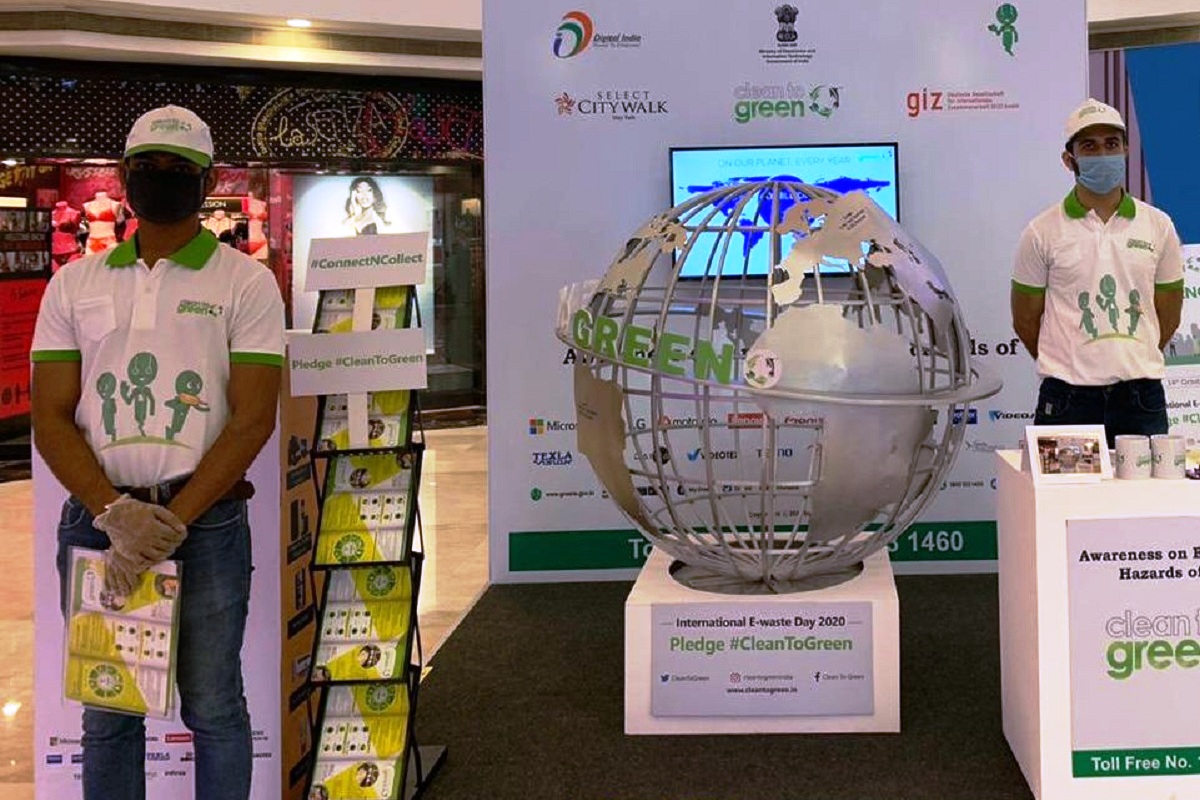Under the aegis of the Ministry of Electronics and Information Technology (MeitY), Clean to Green celebrated the 3rd International E-waste Day (2020) on 14th October’20 to spread awareness about responsible e-waste disposal.
According to the UN’s Global E-waste Monitor (2020), a total of 53.6 Mt (million metric tons) of e-waste was produced across the globe in 2019, at an average of 7.3 kg per capita. Since 2014, there has been a growth of 9.2 Mt in global e-waste generation and the globally generated e-waste is expected to double by 2030, touching 74.7 Mt.
Advertisement
This growth in e-waste is driven by higher EEE consumption rates [on average, the total weight (excluding photovoltaic panels) of global EEE consumption increases annually by 2.5 Mt], short life cycles, and limited repair options.
On the 3rd International E-waste Day, Clean to Green, in line with Digital India and Swachh Bharat missions, reiterated its commitment to reduce adverse environmental impacts caused due to irresponsible and inappropriate e-waste disposal, and advance responsible disposal and recycling of e-waste to mitigate environmental and health hazards.
On the occasion, Radhika Kalia, Managing Director, RLG India said, “This, year, International E-waste Day celebrations were organized from 9th – 14th October 2020. The six day event – #ConnectNCollect Integrated Online & Offline Campaign – primarily aimed at creating awareness, driving collection and educating various stakeholders about non-hazardous systems of e-waste disposal. The various engagement activities on social media, including Collection Challenge, #SpottheChota Hathi Contest and school webinars received great response which in turn increased attendance and participation in the main event on 14th Oct at Select City Mall, Saket. We wished to ensure that the underlying message was conveyed to and received by as many stakeholders as possible, including individuals, families, teachers and communities. We are confident that such events would significantly impact stakeholder habits”.
Emphasizing the dangers of toxic metals present in e-waste, Dr Sandip Chatterjee, Director/ Scientist ‘F’, Ministry of Electronics and Information, said, “On International E-waste Day, we must, as responsible citizens, resolve to educate ourselves about the dangers of irresponsible treatment of e-waste. Electronic gadgets contain metals like gold, silver, copper, palladium, etc. along with materials such as lead, mercury, cadmium, chromium, and brominated plastics, which are extremely toxic”.











